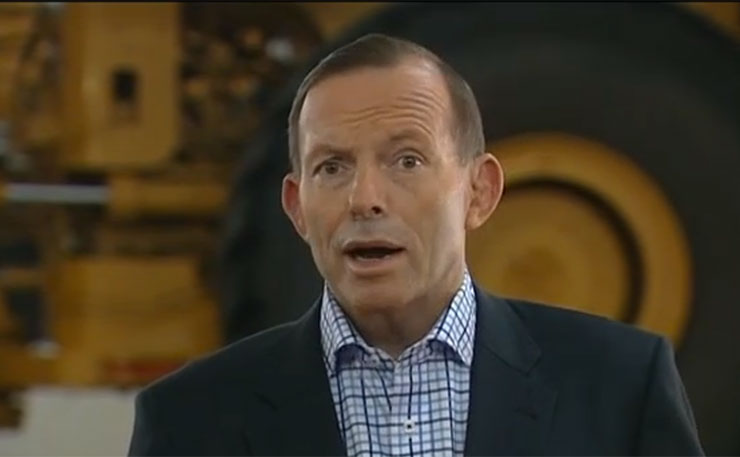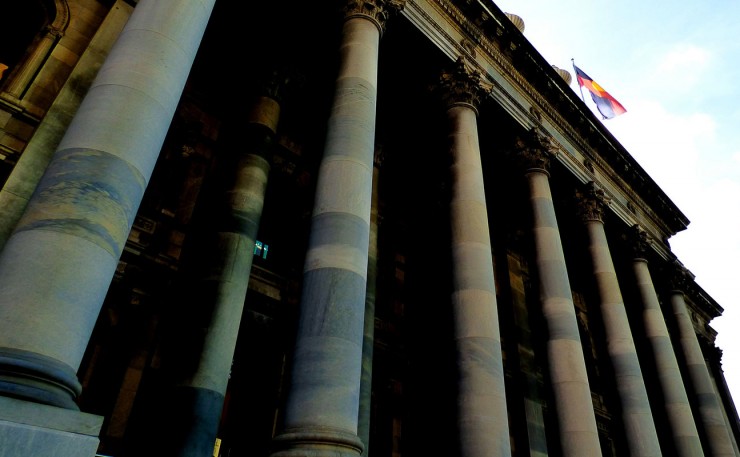Brian Morris explains why politicised religion is at odds with the public mood on contemporary social policy.
There are national implications for the persistent influence that permeates our legislatures, a religious presence that now offends three-quarters of the community. It’s a political malaise we inherited along with colonisation, largely ignored by media but recently described as a “theocracy inside our democracy“.
Rather than representing public opinion on contemporary social policy, our federal and state MPs increasingly reflect an escalation of this ecumenical elitism. It’s not dissimilar to “establishment elitism” that created such public angst – a boil-over that prompted Brexit and the calamity of Donald Trump seizing the presidency.
Why is it that our politicians fail to respond to the mood of the populous? Federal parliament failed to act on popular support for same-sex marriage, an abrupt repudiation of a conscience vote coupled with malicious determination to run a costly and divisive plebiscite. Until rogue senators finally echoed public dissent.
Again, in the early hours of November 17, South Australian MPs showed equal contempt for overwhelming public support on Voluntary Euthanasia (VE). The Bill was dishonestly defeated – for the 15th time. VE is a secular initiative that consistently registers 75 per cent approval from the voting public.
So why is this continual parliamentary rejection of VE so “dishonest”, and what is the common denominator that puts these MPs so staggeringly out of step with public opinion?
One clue is the ‘category‘ of social policy that is constantly defeated. It’s abortion (still illegal in Queensland), it’s contraception (remember RU486), it’s same sex marriage, it’s religious instruction in schools and prayers in parliament, and it’s Voluntary Euthanasia. All are issues opposed by our devoutly Christian politicians.
Inescapably, the Bible is a determining factor here. Now a figurehead for the VE cause, Andrew Denton describes this blatant unwanted intrusion as a “subterranean Catholic force“.
And blatant it is. An IPSOS poll earlier this year showed that 78 per cent of Australians wanted a clear separation of government and religion. The August Census will also confirm all recent polls that show the nation is now majority religion-neutral.
But with monotonous regularity a raft of social policy is dishonestly defeated by parliaments who command a Christian voting cabal that far outnumbers public support. For VE, that ratio is an alarming 2 to 1.
At worst, only 25 per cent of South Australians oppose voluntary euthanasia – yet 51 per cent of the state’s MPs voted it down. And this was not to move the Bill into law but simply to take it to a committee stage for review and fine-tuning. It was a complete repudiation of the public’s demand for a Dying with Dignity law.
What makes this cycle of defeat so dishonest – for all manner of secular legislation – is the basis on which MPs parade a litany of flawed and fallacious arguments in an attempt to camouflage their biblical beliefs.
They use arguments shown to be false – over many years – in all the countries which have legislated for VE.
It seems bizarre that religious MPs will stand, straight-faced, arguing vehemently about the “slippery slope”, the “lack of medical safeguards”, and a gradual degeneration of any VE law to permit “lonely and depressed” young people to commit “legalised suicide”. These are deceitful fear campaigns that subvert the truth.
In August 2015 Tony Abbott – a celebrity Catholic – staged his joint Liberal-National party room meeting that voted 60 to 30 against a conscience vote on same-sex marriage, opting instead for the $160 million plebiscite. Malcolm Turnbull, also a Catholic, continues to defy public and parliamentary calls for a conscience vote.

Why are we electing politicians with religious beliefs that are wholly out of step with contemporary Australia? ‘Personal faith’ is one thing, but the propensity to politically exercise extreme Christianity is quite different!
How much more honest, how much more courageous, and how much more transparent parliaments would become if politicians just had the fortitude to declare their opposition to VE – and to all social policy – was based primarily on their personal religious beliefs.
And that would greatly assist the entire democratic process. Electors would become more acutely aware of how their state and federal MPs voted on all secular legislation that is influenced – to a greater or lesser degree – by passages taken from the Old Testament. And Christianity is founded on this First Book – the very justification for Jesus’ crucifixion is rooted in “atonement of original sin”; and other biblical fables.
Indeed, it is this ‘Hebrew Bible’ that dictates the “values” held by extreme Christians. These are the MPs who influence the entire contemporary social agenda – a religio-political elite that rejects the wishes of voters.
And that clearly includes the 78 per cent of voters who vainly demand the separation of religion and politics.
Donate To New Matilda
New Matilda is a small, independent media outlet. We survive through reader contributions, and never losing a lawsuit. If you got something from this article, giving something back helps us to continue speaking truth to power. Every little bit counts.





